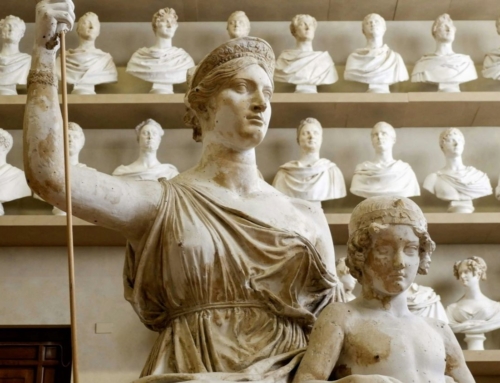When the Gospels record the calling of the Twelve, none of them offers us the qualifications of the Apostles. Nowhere do we find a collection of resumes or CVs that explain to us why Jesus chose those Twelve men. Apart from hints here and there, we do not know much from Scripture about the lives of the Apostles before Jesus called them. Several of them were fishermen, perhaps rather successful ones at that, but what do fishing skills have to do with apostleship? If God wanted to choose them based on merits, are these men really the best candidates?
When we look at St. Paul, an apostle outside the Twelve, we might be more comfortable with him. Sure, he persecuted the Church and tried to destroy the faith, but after his conversion wasn’t he more qualified for the task of preaching? He was a well-educated Pharisee. He knew the Scriptures well. He studied the Law of Moses for much of his life. His letters speak eloquently about the power of the Gospel. If you ask him, however, St. Paul says all of this counts for nothing. His Second Letter to the Corinthians, starting at 11:16,lists countless things in his life about which he might boast, but he calls them all foolishness. Earlier, in the very same letter, he says of his apostleship, “Not that of ourselves we are qualified to take credit for anything as coming from us; rather, our qualification comes from God” (2 Cor 3:5).
This is the correct lens through which to understand the summons of Christ. For God does not judge as humans judge. We see the sorts of things we might put on a resume, the sorts of things that St. Paul could boast of to the Corinthians, and then we impress each other (or not). God, however, does not react to our human accomplishments, since from all eternity, he not only knows them, but enables us to accomplish the very things about which we boast. Praise the Lord for not waiting for us to achieve something noteworthy before granting us his divine help! For what can we do without his aid, natural or supernatural?
The essence of the good news that is the Gospel is on full display here. God’s gift of grace is not given to the worthy, as if our worthiness precedes his gift. God’s love for us is unmerited. We do not earn it. Rather, God’s love transforms us into persons worthy of that love. Jesus does not need to interview those he calls to be his apostles and disciples. He simply loves them into becoming the saints they were always meant to be.
✠
Image: Pietro Perugino, The Holy Trinity and the Apostles.







